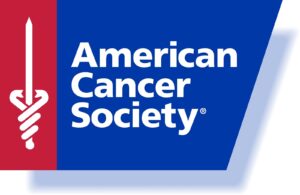Coronavirus threatens to slow progress against cancer prevention
 In an effort to boost public health and help keep vaccinations on track in the midst of the coronavirus pandemic, the American Cancer Society continues efforts around Mission: HPV Cancer Free, a campaign to eliminate HPV cancers as a public health problem, starting with cervical cancer.
In an effort to boost public health and help keep vaccinations on track in the midst of the coronavirus pandemic, the American Cancer Society continues efforts around Mission: HPV Cancer Free, a campaign to eliminate HPV cancers as a public health problem, starting with cervical cancer.
The ongoing pandemic has created unprecedented challenges for healthcare providers, patients, and policymakers. Data indicate that the COVID-19 pandemic is having a negative effect on vaccination rates. Many parents have postponed pediatrician visits to avoid transmission of the virus. The Centers for Disease Control and Prevention (CDC) estimates that HPV vaccinations are down by more than 20% or more than 1 million doses in the public sector alone, compared to 2019.
Adding to the challenge is the expected availability of the COVID-19 vaccine for adolescents. It is predicted that the COVID-19 vaccine will be available for children as young as 12 years old early this summer. If approved, adolescents who get the vaccine will have a seven to eight-week period when they cannot receive other vaccines before, during, or after the COVID-19 protocol. This could impact the number of adolescents who will get their HPV vaccination on time this year. It’s important for parents, in consultation with their pediatricians, to reschedule any missed vaccinations now.
“COVID-19 has reversed some of the gains in HPV vaccination uptake that we’ve worked so hard to make over the years,” said Irene Lo, MD, a general surgeon in the Bay Area and Board Co-Chair for the American Cancer Society. “It’s critical that we act quickly to protect the national investment in HPV vaccination to protect against these six types of cancer.”
HPV or human papillomavirus is a common virus that can cause six types of cancer. About 14 million people in the United States become infected with HPV each year. Eight out of ten people will get HPV at some point in their lifetime. Most infections become undetectable, but some can go on to cause cancer.
“HPV vaccination works best when given between ages 9 and 12,” added Shelly Barsanti, Board Co-Chair for the American Cancer Society in the Bay Area.” Vaccination at the recommended ages will prevent more cancers than vaccination at older ages.”
Children and young adults ages 13 through 26 who have not been vaccinated, or who haven’t gotten all their doses, should get the vaccine as soon as possible. Both boys and girls can get infected with HPV. HPV vaccination helps protect boys from cancers of the throat, penis, and anus later in life. HPV vaccination helps protect girls from cancers of the cervix, throat, vagina, vulva, and anus later in life.
The goal of Mission: HPV Cancer Free is to reach a vaccination rate of 80% of 13-year-olds in the United States by 2026. For information on cancer prevention, early detection, treatment, cancer recovery or free services, visit cancer.org. To speak with a live Cancer Information Specialist 24/7 in multiple languages, call the American Cancer Society anytime at 1.800.227.2345.
For further information: Beckie.MooreFlati@cancer.org or 714.697.8666 mobile.

Leave a Reply